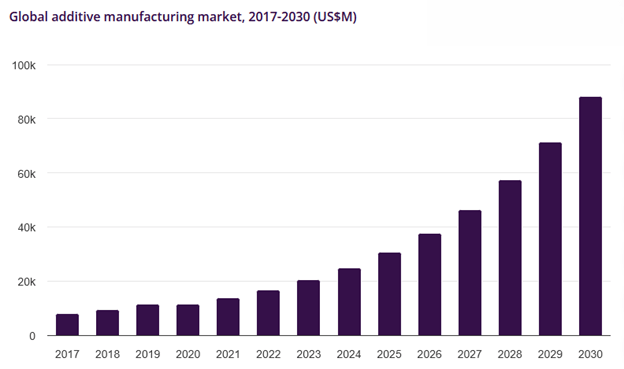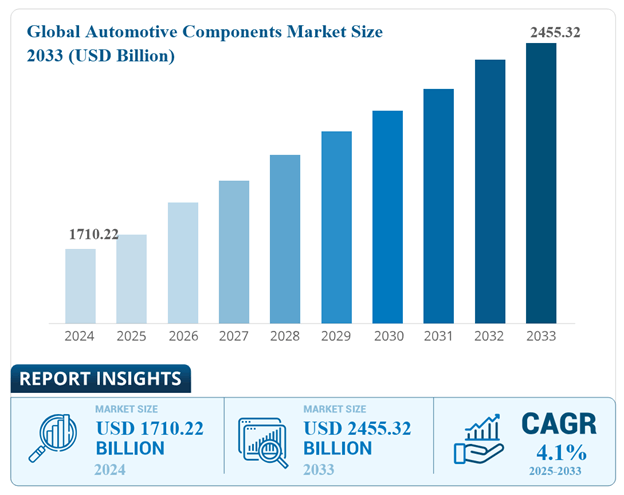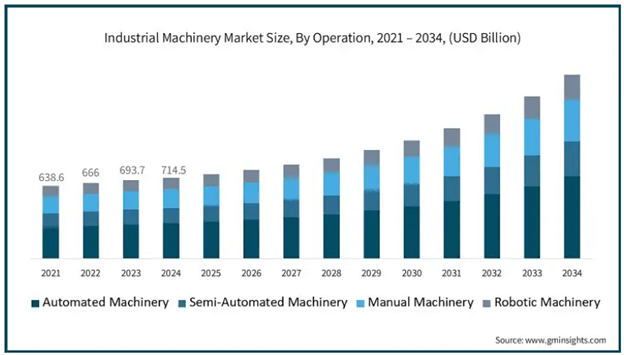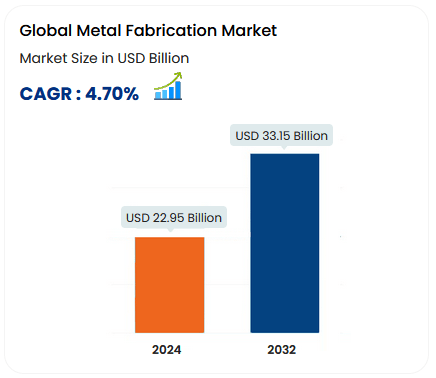
Many consider manufacturing to be the backbone of the global economy — and for good reason. Manufacturing spans and supports nearly every other industry. And similar to other massive sectors, like healthcare, manufacturing is incredibly fragmented with many niche sub-sectors underneath its umbrella. From creating small specialty screws to crafting massive agricultural combines, manufacturing offers private equity organizations many investment opportunities to explore.
There are a few key factors to consider before your firm jumps into the manufacturing space. First, manufacturers have been undertaking massive reshoring efforts over the past few years. Factory construction in the US more than doubled between April 2022 and December 2023, largely due to the CHIPS Act.
The surge in new factories means those manufacturers will need workers — 250,000 of them, according to Goldman Sachs. And Kearney's last Reshoring Index suggests the trend has no sign of slowing, with 96% of manufacturers either in the middle of reshoring or evaluating the move.
Recent economic uncertainty, including the question of what trade tariffs will take effect and when, puts a spotlight on these reshoring efforts. It opens the door to potential capital needs for private equity organizations, especially considering manufacturing generally moves more slowly than other industries.
Manufacturing is an industry steeped in history. Ninety percent of US-based manufacturers are family-owned businesses, with 125,000 owned by Baby Boomers. This bodes well for dealmakers who are able to harness the data and technology necessary to focus their sourcing efforts and pinpoint opportunities ripe for modernization.
For private equity organizations to succeed in manufacturing, they must be thoughtful about where they place their bets and identify the niche that resonates with their current portfolio, domain expertise, and business strategy. Here are five of the top manufacturing sub-sectors to help you start your search and explore potential opportunities.
Whether you grew up reading about Douglas Adams's dream of "printing" whatever food you thought of or not, the ability to fully design and manufacture complex products and parts in mere hours was once entirely science fiction. Today, it's its own manufacturing sub-sector.
Additive manufacturing represents 3D printing in various media. While the practice began with mostly plastics and resins, additive manufacturers can choose to create metal-, wood-, and cement-based creations, including houses. As Adams predicted, there are even early applications for 3D printing food.
The popularity of additive manufacturing is largely due to the technology's infinite possibilities. Take prototyping, for example. A simplified traditional product design process includes drawing a design, building a model from a medium (such as clay), creating a (usually expensive) mold, and finally producing the item by casting molten metal or plastic into the mold and letting it harden. With 3D printing, the process can be as simple as 3D modeling a design and then printing the product, which drastically reduces both the cost and timespan for prototyping.
While the overall market is still small today, it's expected to grow quickly. Grand View Research forecasts a total market value of $88.2m by 2030, at a compound annual growth rate (CAGR) of 23.3%.

Nearly every other industry benefits from the opportunities that additive manufacturing provides, including manufacturing itself. However, 3D printing materials other than plastic can be prohibitively expensive.
For example, a decent PLA (plastic) 3D printer for home use can be a few hundred dollars. Metal 3D printers, however, are primarily for commercial use and cost hundreds of thousands of dollars. The hefty price tag could be a blessing in disguise for private equity, though. If manufacturers want to enter the world of metal-based additive manufacturing, they may be more open to a deal.
However, while the industry is picking up steam, most manufacturers are still only scratching the surface of what's possible. While we've seen widespread applications in multiple industries (e.g., in-office dental implants via 3D printing), additive manufacturing still has quite a way to go before we fully realize its potential.
DIVE is a New Jersey-based company specializing in additive manufacturing and design services, offering comprehensive product development and production services. Their offerings include innovative 3D printing solutions for various sectors such as healthcare, consumer goods, automotive, and technology. Clients utilize these services to enhance public spaces, improve accessibility, and enhance the sustainability of their products.
Kollide is a Montreal-based company specializing in impact protection technologies through 3D printing. Their primary offerings include the Gladiator helmet, designed to enhance safety and performance in various sectors such as the NFL, cycling, and security. These products are designed for optimal performance and compliance with all standards. Kollide serves a diverse clientele, including professional athletes and universities.
ODEM is a specialized provider of 3D printing services, specializing in the design and production of polyethylene products. Their offerings include urethane molding, CNC processing, painting, and project management. Clients, particularly in the urban furniture and hospitality sectors, utilize these services to enhance the production of high-value products, including electronic enclosures and various plastics.
One of the first sub-sectors likely to come to mind when considering manufacturing is automotive. After all, Henry Ford kicked off the industrial revolution over a century ago, reimagining manufacturing and turning the industry into what we recognize today.
However, when it comes to investment opportunities, automotive manufacturing is dominated by a few recognizable players at the top, including the Ford Motor Company, with an incredibly high barrier to entry.
Many don't realize that while the automotive market is expected to hit $2.8 trillion in total value by 2033 at a 2.79% CAGR, the automotive parts industry is just as large and growing more quickly. Business Research Insights forecasted the global automotive components market to hit $2.45 trillion by the same year at a CAGR of 4.1%.

While the overall automotive and automotive components industries are indisputable titans, the industry ranks only fifth-highest by global value added in manufacturing. However, nine of the 20 largest manufacturing companies in the world are automotive companies.
This discrepancy between the size of the companies at the top and the rest of the industry means there are considerable opportunities for private equity organizations looking for smaller, privately-owned businesses. Instead of setting your sights on car and vehicle manufacturers, consider those making the components that go into these cars (including factory-installed and aftermarket).
Aurelius Private Equity's recent acquisition of Teijin Automotive Technologies North America (TAT-NA) showcases that unicorns exist even in the smallest niches. As you consider what specialty to explore next in automotive manufacturing, remember to include vehicles that operate in other industries, as well (e.g., shipping & logistics, agriculture, construction).
A.M. Haire Manufacturing & Service Corp.
A.M. Haire is a family-run truck body manufacturer specializing in high-quality truck bodies and equipment. Their offerings include custom truck bodies, custom platform and flatbed bodies, and specialized solutions for the dry freight industry. AMH serves a diverse clientele, including Fortune 500 companies, providing solutions that enhance operational efficiency and customer satisfaction through top-quality service, custom orders, and maintenance.
DeatschWerks is a manufacturer specializing in high-performance EFI fuel system solutions, offering a diverse range of products including injectors, pumps, modules, rails, filters, and surge tanks. Their offerings cater to various applications such as sport compact, modern, and Euro applications.
United Muffler Corporation specializes in producing durable, high-performance mufflers and exhaust systems, particularly for heavy industrial vehicles. Their products are designed for various applications, including school buses, construction equipment, custom vehicles, and even systems such as generators.
AI is a popular topic in nearly every industry, and manufacturing is no exception. Coined as "smart manufacturing," "digital manufacturing," or "Industry 4.0," industrial automation is officially in full swing.
Most often, manufacturers' use of automation and AI is restricted to the factory floor. Robots are increasingly deployed as a replacement or augmentation for skilled human workers, taking on tasks with repeated precision that few humans can match. However, robotics has opened many doors for different skills to flourish, including programming and robotics maintenance.
AI-powered software has also entered the game, helping to improve safety on shop floors (e.g., identifying equipment damage or safety incidents), ensure quality control (e.g., locating even minuscule product defects en masse), enable predictive maintenance, and more.
While the industrial automation sector isn't growing quite as quickly as additive manufacturing, it is still expected to reach a respectable $399.1 million by 2029 at a CAGR of 9.3%, according to Markets & Markets.

In addition to AI, this growth is largely attributed to the Industrial Internet of Things (IIoT) and manufacturers' desire for increased efficiency. The aforementioned predictive maintenance is a key example. In the past, maintenance occurred regularly or when something broke down. Predictive maintenance uses AI to identify when something might soon fail or may need parts replaced based on previous maintenance records.
Similar to additive manufacturing, manufacturers are only scratching the surface of what's possible with industrial automation. Most manufacturers have focused only on the factory floor when considering AI and automation, leaving their decades-old software and processes intact.
In fact, manufacturers with successfully-deployed software such as an enterprise resources planning system (ERP) or customer relationship management system (CRM) are considered "on the bleeding edge." Private equity organizations that have embraced technology and data-driven decision-making could find massive opportunities in manufacturing if they seek to apply their technical know-how post-deal.
Whether or not a PE firm lends a helping hand, manufacturers are slowly learning to reap the rewards of AI and automation on the floor and in the front office. However, as they deploy more advanced technology, the workers who can help implement, maintain, and improve the tech are a package deal. As such, labor may be more difficult or expensive to source, especially since some robotics and AI are somewhat difficult to train.
PE firms that proactively present solutions and offer business advice for how to solve this labor problem may be able to sway deals in their favor.
A company designed to help manufacturers more quickly, easily, and automatically sort products as they move through the production line, Aegis Sortation engineers sortation and automation equipment. To advance manufacturing speed and throughput while maximizing resources and profit, Aegis designs, distributes, and services conveyers and conveyance technology for many manufacturers, including top logistics companies.
Plan Automation specializes in food safety and quality inspection, focusing on x-ray and metal detection solutions for food manufacturers to ensure compliance with food safety regulations. Its offerings include automated case formers, semi-automatic stretch wrapping machines, and advanced metal detection systems. The company's customers include mostly small and medium-sized food manufacturers across various industries.
Specializing in robotic machine tending, cell integration, leak test equipment, workholding, and automated welding, Turn-Key Solutions caters to various industries, including automotive, construction, and manufacturing. The company serves a diverse clientele, including healthcare, logistics, and construction companies, providing tailored solutions to enhance operational efficiency, including custom equipment and maintenance services.
The industrial revolution was made possible through the power of machinery, and with it brought about the creation of a new manufacturing sub-sector: industrial manufacturing. Often referred to simply as “Machinery,” industrial manufacturing is essentially the backbone of the entire industry. The companies in this sub-sector produce the machines that fuel all the other sub-sectors — and many beyond manufacturing.
As you might imagine, the sub-sector is one of the largest by market size, and is expected to grow to a staggering $1.61 trillion by 2034. While the sub-sector isn't the fastest-growing in manufacturing, its 9% CAGR is nothing to sneeze at and could prove a worthwhile investment for private equity organizations looking for their next deal.

Go to any manufacturer factory floor, and you're bound to see at least one machine there. One of the benefits of either operating or investing in an industrial manufacturer is that if a particular industry isn't doing well, you're able to switch gears and power another, more promising sector with relative ease.
As the years roll on and both machinery and technology continue to evolve, make sure to keep up with the times. Investing in research and development (R&D) can be especially fruitful, and the capital private equity provides for this can be incredibly persuasive during deal negotiation.
Acasi Machinery specializes in manufacturing liquid filling machines, including piston fillers, flow meters, bottle handling, and bottle cleaning solutions. The company's offerings cater to a wide range of products, from thin liquids to more viscous. Customers utilize these machines to ensure cost-effective solutions for their packaging needs. Acasi sells both through their online platform and via partnerships with manufacturers.
Bailey Specialty Cranes and Aerials
Designed to enhance operational safety and efficiency, Bailey Specialty Cranes and Aerials was founded under the leadership of Jeffrey Bailey, who pioneered explosion-proof technology for mobile elevated working platforms (MEWPs). Also known informally as cherry pickers, Bailey's innovative, tailored MEWP solutions makes the company a trusted partner for industries like aerospace, defense, and construction.
Edge Production Supplies is a Western Canada-based manufacturer specializing in innovative cutting tools and equipment. The company sells various tools that are used by machine shops to enhance production and profitability. Target customers include small job shops, large OEMs, and large manufacturers that can purchase from Edge either directly or through authorized distributors.
Similar to machinery, the metalworking and fabricating sub-sector is one that spans the entire manufacturing industry and beyond. However, usually items are produced and services are offered on a much larger scale. Rather than produce an entire crane, for example, metalworkers have a hand in welding, CNCing, or laser cutting pieces of the finished piece of machinery.
Alternatively, fabricators may manufacture small metal items such as gadgets or fasteners, which make their way into countless applications. Because of the sub-sector's many uses, it's one that is very unlikely to struggle to grow.
Data Bridge Market Research forecasts the metal fabrication market to hit a respectable $33.2 billion by 2032 at a CAGR of 4.7%. While the industry certainly isn't as large as machinery or automation, the size discrepancy is likely due to the relatively small value of the products sold.

Metalworkers and fabricators have a hand in creating just about every machine seen on factory floors. Countless industries outside manufacturing also need their skills, including shipping & logistics, construction, and agriculture. Any place where you see metal, you’re seeing the handiwork of a metalworker.
The sub-sector, however, is currently struggling with the concept of automation. Many are taking the first step toward supercharging efficiencies by automating the welding process, as welding robots have existed for quite some time and are simple and straightforward to implement.
PE firms can help manufacturers more easily choose where and what to automate next, including optimizations for the factory floor and in the front office. This is especially true as technology evolves and more manufacturers adopt various solutions, turning the conversation from "What do we automate?" into "How do we integrate all the automation we have?"
American Pride Fasteners is a manufacturer specializing in the production of threaded and Swiss screw machined components. Their offerings cater to various industries such as aerospace, military, medical, and electrical applications. The company prioritizes high-quality products and customer satisfaction across their diverse clientele. American Pride Fasteners produces standard and custom components for the military, aerospace, and commercial sectors.
Aloha Manufacturing is a contract manufacturer specializing in precision-machined components for various industries, including aerospace, military, medical, and semiconductor manufacturing. The company offers a wide range of services, including milling, turning, assembly, and OSP controls via their fully-automated and "lights-out-capable" facility in California.
Impact CNC is an award-winning contract CNC manufacturer based in Columbia City, Indiana, specializing in the manufacturing, agriculture, construction, and transportation industries. The company offers many state-of-the-art CNC machines, including life management systems, constant-pressure pressure systems, and hydraulic components.
The manufacturing industry is incredibly massive with countless niche opportunities to explore, which makes vetting all the possibilities and identifying ideal targets no small task. But especially as the current generation of family-owned, Baby Boomer-led manufacturers continues to age, there's no time like the present to begin searching for a deal.
With Sourcescrub, dealmakers can more easily find those manufacturers wanting a little help to grow. Our deal sourcing platform helps you research entire markets, dive into industries, and learn exactly what events are worth attending to make the right connections quickly.
See what Sourcescrub can do for your organization. This list of the top manufacturing conferences came directly from our platform — check it out!